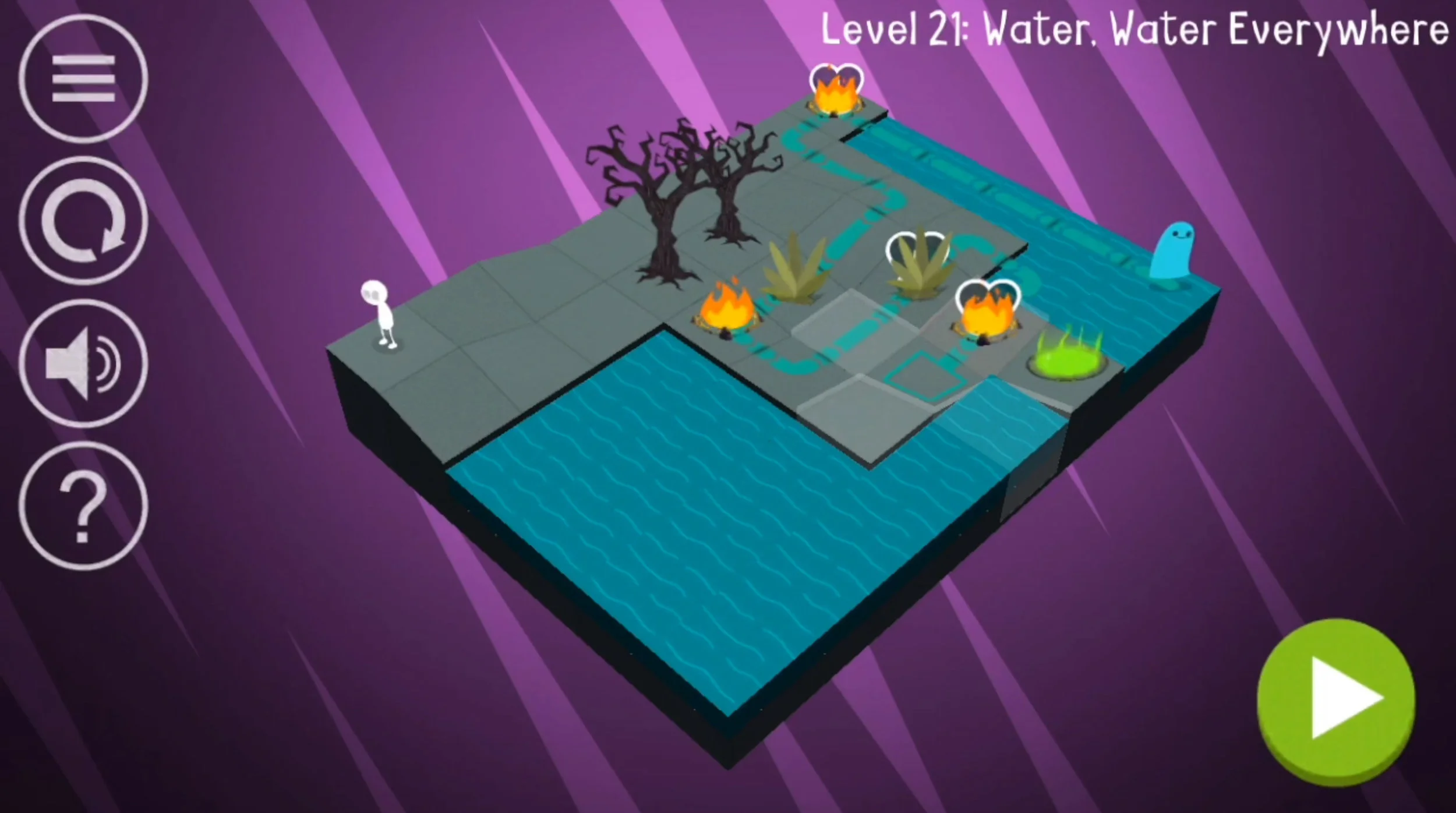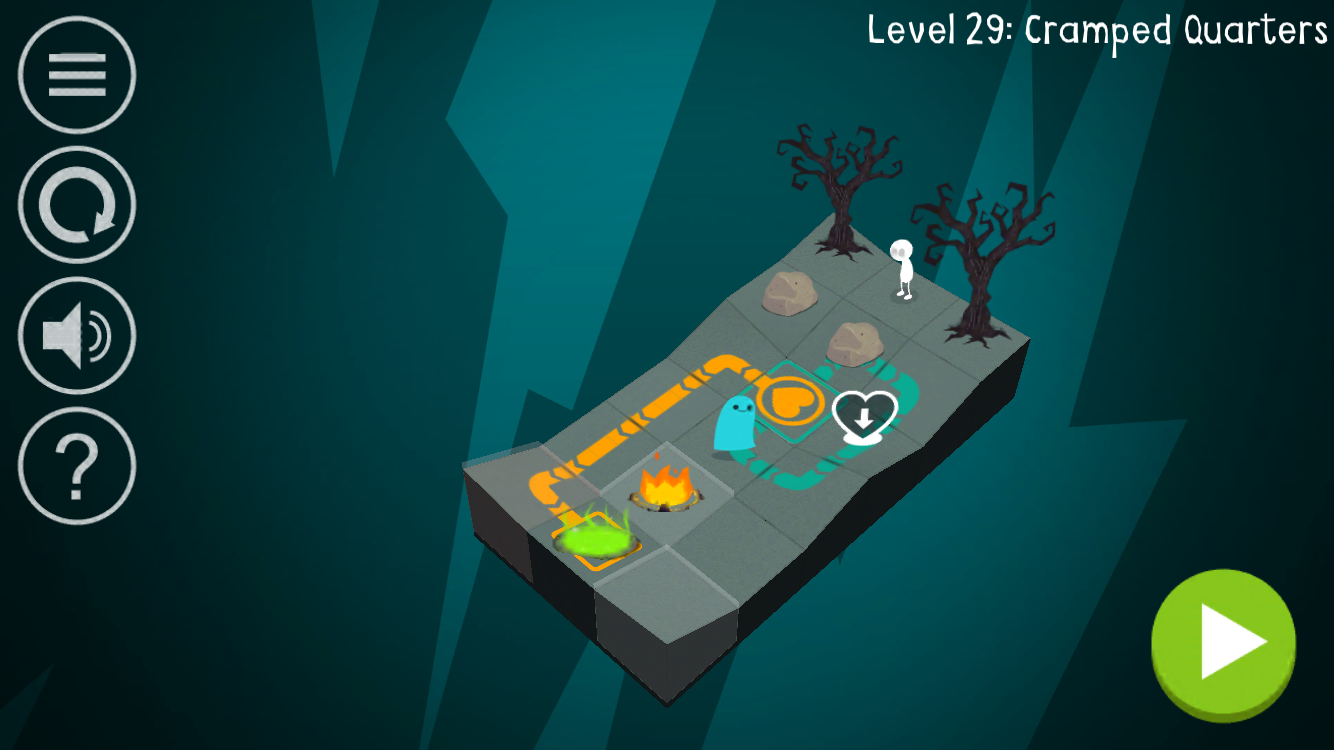
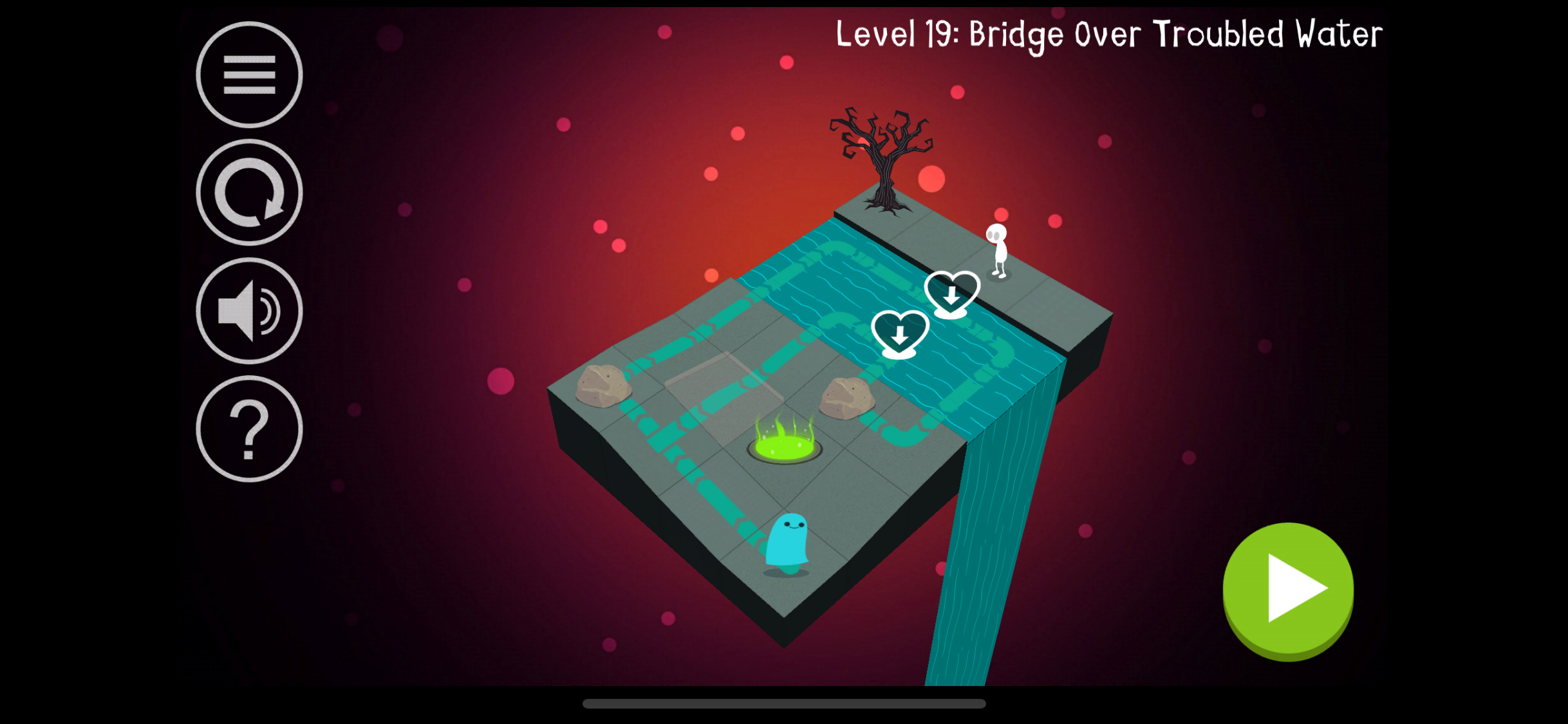
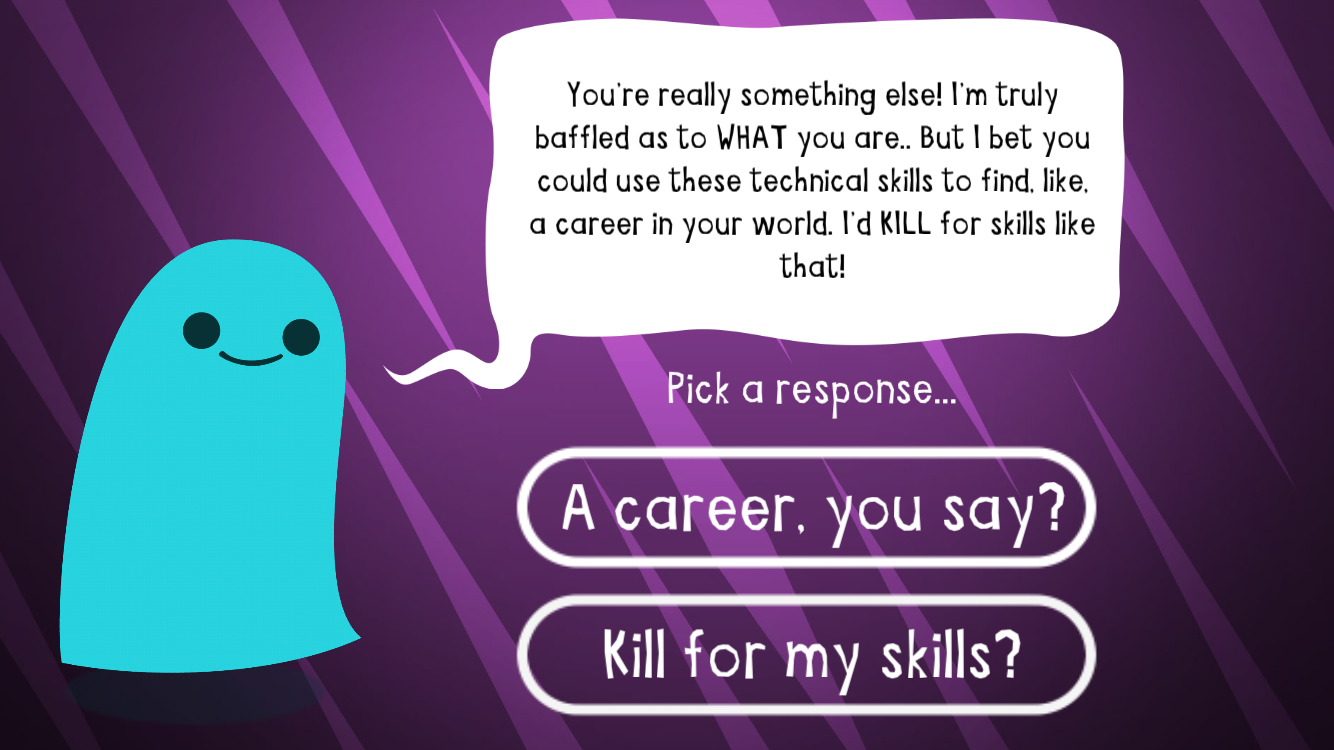
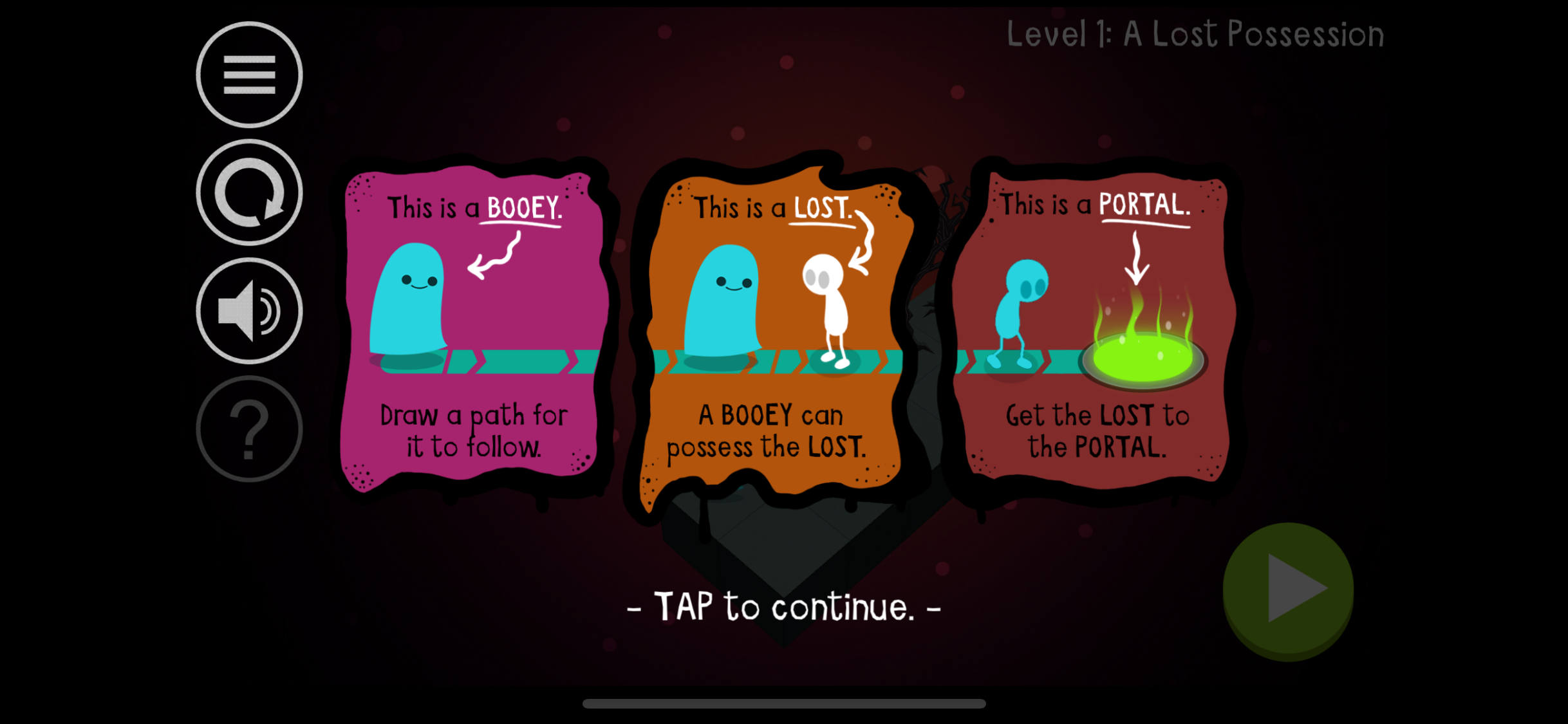
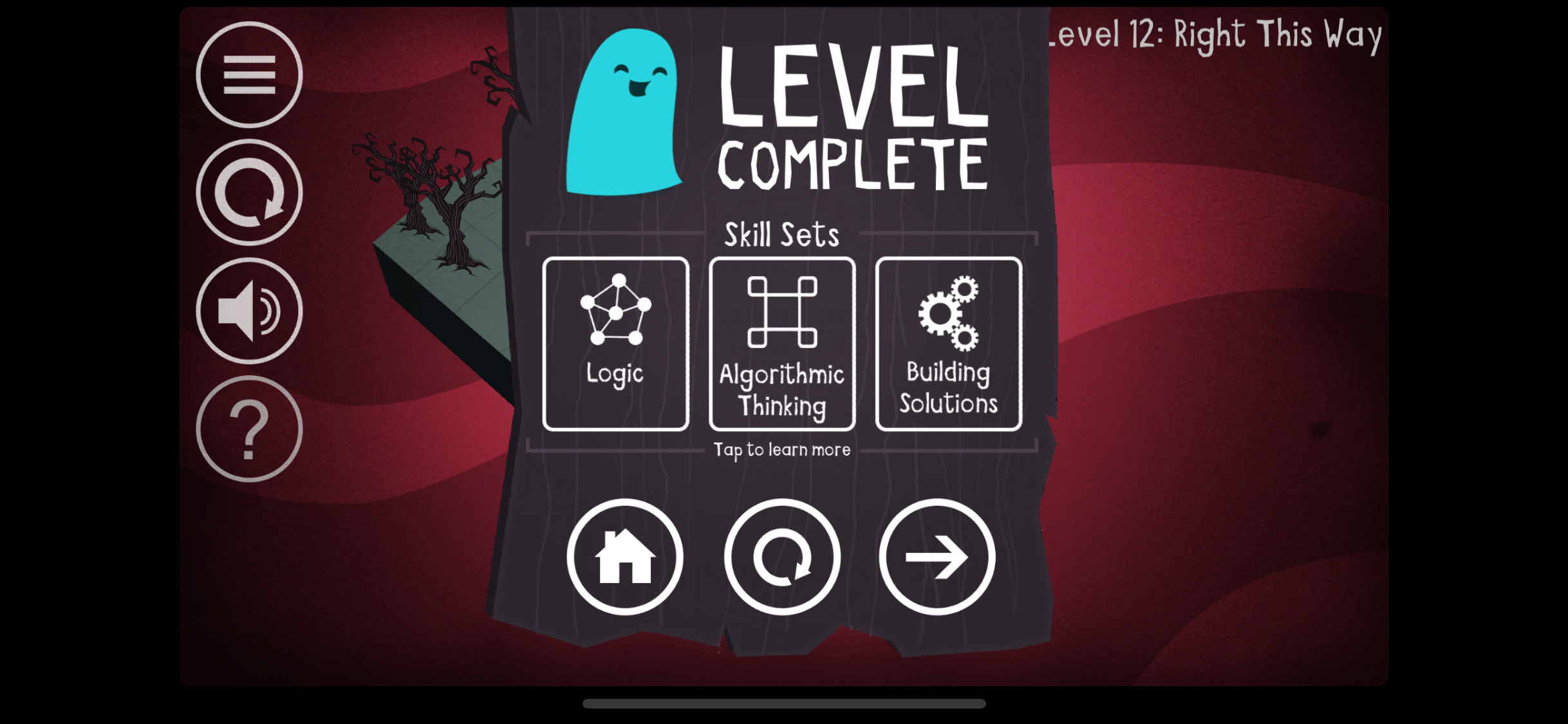
Booeys: A Ghost’s Code
Description: Booeys was developed with the intention of generating interest in technical jobs by giving players positive reinforcement when they demonstrate the fundamental skills necessary for success in those careers.
In the game, the player assumes control of a ghost-like character called a Booey. Their goal is to help a lost child reach a portal to escape a dark forest. The Booey doesn’t respond to inputs in real time, however. Instead, the player builds a program consisting of predetermined movement inputs and systemic interactions. The player then presses the play button and watches the "program" execute. This is meant to loosely mimic the experience of writing and debugging computer code.
Platforms: Mobile
Team: 5-person team
Type: Professional Project (Simcoach Games)
Role: Level Designer
Core Responsibilities: Level Design (designed 18 of the game’s 36 levels), assisted with narrative writing, tutorial design, moderated playtests and analyzed tester feedback
Tools: Unity
Available for download on:
Gameplay Video
Below is a video of Level 19, A Bridge over Troubled Water.. The video shows two attempts at completing the level: one failure and one correct solution. Lost children always walk toward bright objects (fire, portals) when their view is unobstructed. The challenge of this level is to use the pick-up and set-down object mechanics to build a bridge of rocks, while keeping the portal out of view from the child so he doesn’t walk into the water and drown.
Teaching Mechanics through Level Design
Booey's features a number of interlocking environmental systems (rocks, plants, water, fire, trees, and fences) and mechanics (pick-up, drop, loops, splits, possession) . My goal as the designer of most of the game’s levels was to slowly introduce mechanics with simple puzzles that guide the players to use the new mechanic in their solution. Then I built puzzles that layer these mechanics on top of one another in increasingly complex solutions.
Below is an example of how mechanics are taught through level design then combined for more challenging puzzles.
Level 3: Can’t Hurt to Try
Introduce player to the fire mechanic.
Communicates that fire is lethal to the Lost children.
Level 11: Spicy
Teaches players that the Booey can pick up objects that they pass over.
Reinforces the idea Lost children will walk toward fire.
Teaches concept that Lost children will change direction to follow nearest light source in their sight line.
Level 18: Rockin’ Water
Teaches players drop mechanic
Teaches players that rocks can be dropped in water to create a bridge for the lost child to walk across.
Level 20: I Am Who I Am
Teaches player that plants obscure the lost child’s view can be dropped on plants.
Teaches players that fire can be dropped on plants to destroy them.
Level 21: Water, Water Everywhere
Combines Fire, Water, and Plants, along with pick-up/ drop mechanics into a more complex challenge
